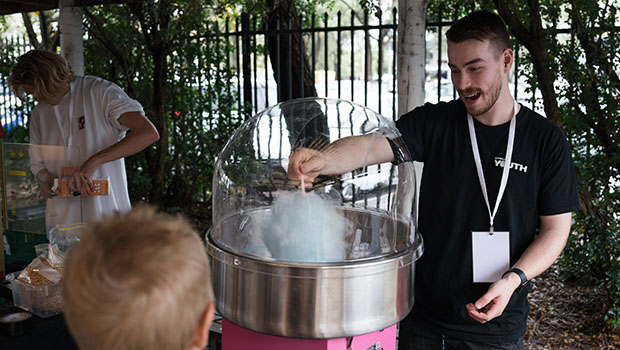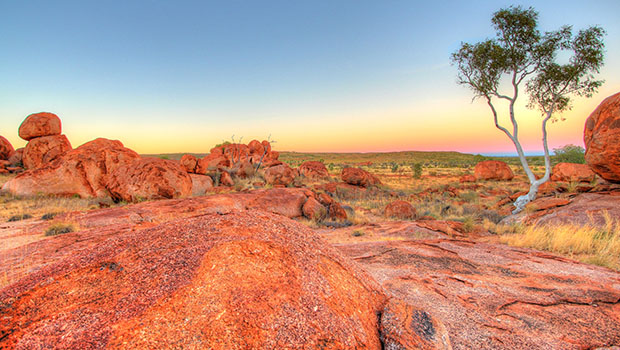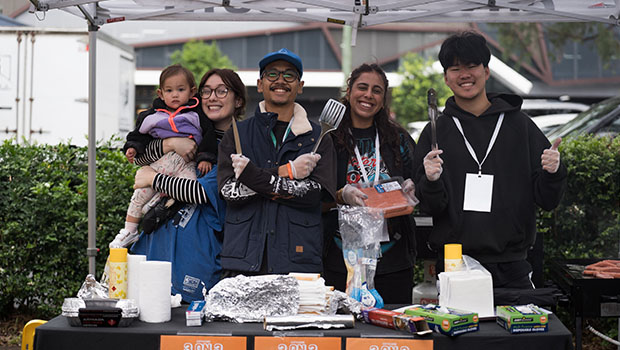At CityCare, we have had the privilege and opportunity to collaborate with various organisations and individuals dedicated to supporting Indigenous Australians. One such remarkable individual is Jen Burks, a former student of Hillsong College. Jen came to Australia from the USA for College and over the past five years, has resided in the Northern Territory, actively working in the field of Early Education. Her primary focus has been with the Warlpiri Indigenous Australians, predominantly in Alice Springs, Yuendumu, Willowra, Nyirripi, Lajamanu, and more recently in Maningrida within West Arnhem Land.
As part of our commitment to recognising National Reconciliation Week, we engaged in a conversation with Jen to gain insight into her experiences and her understanding of reconciliation within remote communities.
What does reconciliation/meaningful change look like for a remote community?
When I contemplate what reconciliation could entail in a remote community, a particular statement comes to mind, one that I used to convey to the staff in Lajamanu. I would say, “People may try to convince you that we are limited in our capabilities due to our remote location. They will find excuses to justify why we shouldn’t have access to the same amenities. When someone presents this argument, I want you to respond by emphasising that our geographical location does not determine our potential obstacles, nor does it mean we are restricted to the same resources as those in more accessible areas. It might mean that it will take us 2-6 weeks to receive something that would typically take you only a day or so.”
This statement challenges the perception that remoteness equates to insurmountable barriers. It reinforces the notion that individuals in remote communities possess the same aspirations, skills, and determination as anyone else, and that they should not be denied equal opportunities based on their location. It is a reminder that despite the challenges posed by distance, it is still possible to strive for and achieve positive outcomes.
In the context of reconciliation, this perspective encourages a shift away from viewing remote communities as disadvantaged or incapable. It promotes the understanding that with appropriate support, resources, and recognition of their unique circumstances, these communities can overcome obstacles and contribute meaningfully to the process of reconciliation.
Reconciliation is about acknowledging and understanding diverse perspectives. It entails actively listening to all sides, recognising that varying viewpoints exist, and accepting that some outcomes may require more time than others. Regardless of the proximity or distance of the issue, it is crucial to consistently strive for reconciliation. The process begins by gaining a comprehensive understanding of the situation.
The key to this process lies in awareness and perspective. These two elements are paramount. Earlier this year, during an extended stay in Sydney, I truly grasped how differently I had grown accustomed to my way of life. I realised the value of simple luxuries, such as the ability to visit stores at any time and purchase a wide range of affordable fruits and vegetables. However, upon returning to Katherine, I was confronted with an empty grocery store due to the devastation caused by floods that had damaged roads, train tracks, and bridges. This experience served as a stark reminder of the importance of perspective.
The theme this year for National reconciliation week is Be a Voice for Generations, what would this look like in a remote community?
It is often disheartening to witness the decline of many indigenous languages and cultural practices due to the influence of platforms like TikTok and other social media. The younger generation seems less interested in learning the traditional ways, as they find themselves easily distracted by more appealing things. I have observed instances where elders implore their young children to teach them certain skills, only to be met with disinterest. While this issue may not be prevalent in every community, it is undoubtedly becoming a significant problem.
There are certain artistic skills that can only be passed down from one generation to another, solely through the guidance of an elder. If we lose this valuable knowledge, an entire generation will suffer the consequences, simply because there is a lack of concern or effort to preserve these customs. Personally, I am grateful for the opportunities I have had to live and work in communities that hold deep passion for their traditions and practices.
For the voices of future generations to truly resonate, it is essential to acknowledge this oversight. Unfortunately, many organisations are preoccupied with acquiring multi-million-dollar grants and using indigenous children as mere photo opportunities to create reports that give the illusion of supporting the cause. However, these efforts often fade away once the financial year ends.
What does ‘Being a Voice for Generations’ look like outside of community?
Indigenous elders are rapidly passing away, and it seems like there is news of a sorry business occurring somewhere almost every other day.
One effective approach is to ensure the transfer of knowledge is by working with elders and Traditional Owners to record the elders speaking their languages, sharing their laws, and performing traditional dances. Doing this in partnership with elders and Traditional Owners, would serve as a time capsule, preserving the wisdom and teachings that have been passed down through tens of thousands of years. Another effective way of ensuring language is preserved in this modern world would be to work alongside local First Nations media networks. By teaming up with remote community radio stations and asking the elders to speak the language over the radio waves, it will further expand the influence.
Not everyone will have the rare opportunity to live and work in remote corners of Australia, but there are practical steps one can take. I would encourage anyone wanting to be a voice for reconciliation to start by conducting research. That’s what I had to do when I arrived here. Understanding the culture was just the beginning; it took delving into someone else’s culture and traditions to uncover the commonalities and bridge the gap.
How would someone who is not in community be a voice for generations?
I would challenge anyone wanting to be a voice for generations to reconsider their language. Instead of perpetuating an “us versus them” mentality, let us embrace a collective “we.” If we truly aim to be unified as one body under Christ, then it is certain that Jesus does not segregate people based on age, demographic background, or financial status. Together, we can foster an environment where everyone feels valued, regardless of their differences, by adopting a language of unity and acceptance.
National Reconciliation Week is also about learning our shared histories, cultures and achievements, do you have any tips or reading material/courses/other literature you would suggest for this?
I would suggest to someone that they simply begin the conversations. If you have individuals within your sphere of influence who identify as Aboriginal or Torres Strait Islander (Indigenous Australians), I encourage you to initiate conversations with them about reconciliation. Approach them with genuine curiosity and ask for their thoughts and perspectives on the matter. The key here is to listen attentively without interjecting your own thoughts or opinions, as it is crucial to create a space where their voice can be eloquently communicated.
By opening this channel of communication, you demonstrate your willingness to understand and support their experiences. Once the dialogue has been established, inquire if there is anything you can do to contribute to the progress of reconciliation. Offer your assistance as an ally in their journey towards healing and understanding. Remember, your role is to support and amplify their voices, not to overshadow or take control of the conversation.
Reconciliation requires active engagement and commitment from all members of society. By fostering meaningful conversations and actively seeking ways to be of assistance, you can contribute to the ongoing process of reconciliation in a respectful and meaningful manner.
If you have the opportunity, enrol in an Aboriginal Studies course, that will really aid in understanding the history along with the present challenges and concerns.
If you or an organisation you know wants more information about what reconciliation week is or how to get more involved, I would encourage you to check out the below links for reference.
Permission has been giving from ALL Traditional Owners to allow this blog to be shared.




